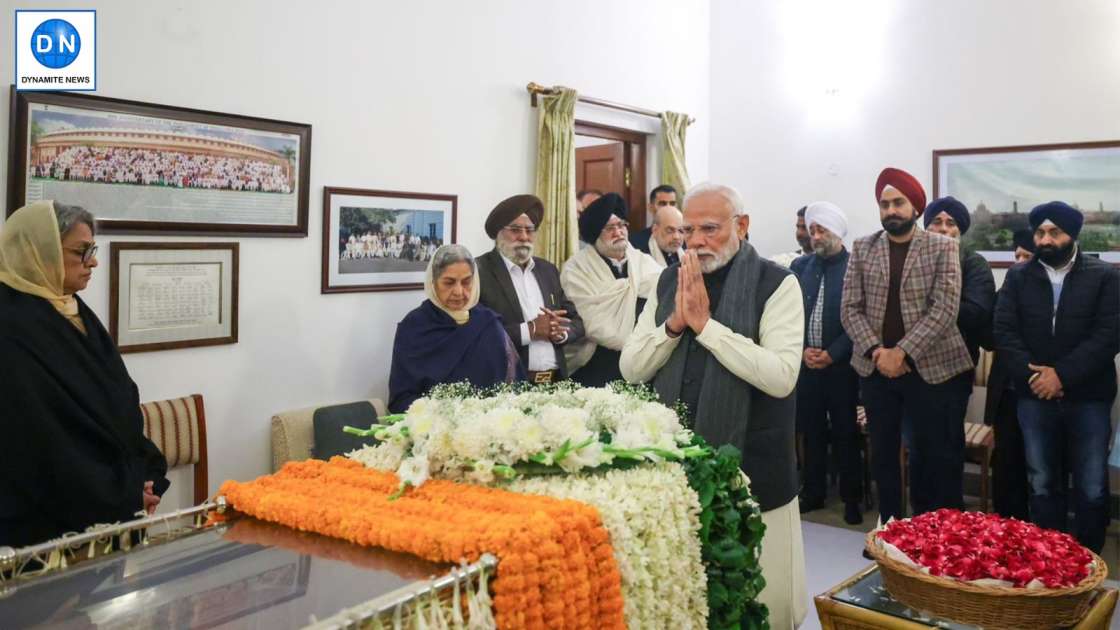
New Delhi : Prime Minister Narendra Modi paid his last respects to former Prime Minister Manmohan Singh at his residence in Delhi on Friday. The Prime Minister also offered condolences to Manmohan Singh's family on his demise.
Union Home Minister Amit Shah and Union Health Minister and BJP National President JP Nadda also paid their last respects to Manmohan Singh.
Congress leaders, including KC Venugopal, were also present at the former PM's residence.
Manmohan Singh passed away at AIIMS, Delhi, on Thursday evening at the age of 92 due to age-related medical conditions. He had a sudden loss of consciousness at home after which he was rushed to the AIIMS Delhi.
The mortal remains of the former PM
The mortal remains of the former PM will be kept at the All India Congress Committee (AICC) headquarters in Delhi for public viewing.
As per the Congress party sources, the 'last darshan' will be scheduled for Saturday between 8:00 to 10:00 in the morning.
Also Read |
Binoy Job, former director in PMO, pays tribute to Manmohan Singh
All the party leaders including Rahul Gandhi and Sonia Gandhi will pay tribute to the former PM at the AICC office after which the last rites will be carried out.
Singh, renowned for introducing the 1991 economic liberalisation reforms as the Finance Minister of India, will be cremated near Rajghat, at the location where the last rites of Prime Ministers are performed.
Several politicians and personalities from all walks of life have been expressing their sorrow over the demise of former PM Manmohan Singh. Prime Minister Narendra Modi on Thursday night said that condoled the demise of former Prime Minister Manmohan Singh saying that India mourns the loss of one of its most distinguished leaders.
Manmohan Singh was born on September 26
Manmohan Singh was born on September 26, 1932. Apart from being an economist, Manmohan Singh served as Reserve Bank of India governor from 1982-1985. He was the 13th PM of India with his tenure from 2004-2014 and was the longest-serving PM after Jawaharlal Nehru and Indira Gandhi.
Also Read |
Statesman who transformed lives of ordinary people: KC Venugopal remembers Manmohan Singh
Serving as the finance minister of India in PV Narasimha Rao's government, Singh has been given credit for economic liberalisation in the country in 1991. The reforms made the Indian economy more accessible to foreign investors, which increased FDI and reduced government control.
It greatly contributed to the country's economic growth.
Manmohan Singh's government also introduced the National Rural Employment Guarantee Act (NREGA), which later came to be known as MGNREGA.
The Right to Information Act (RTI) was passed in 2005 under the Manmohan Singh government, which made the transparency of information between the government and the public better.
Dr Manmohan Singh retired from the Rajya Sabha earlier this year after serving for 33 years.







